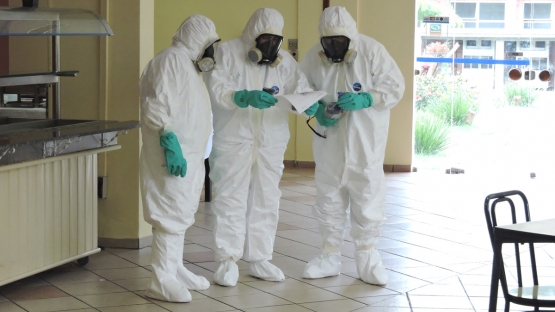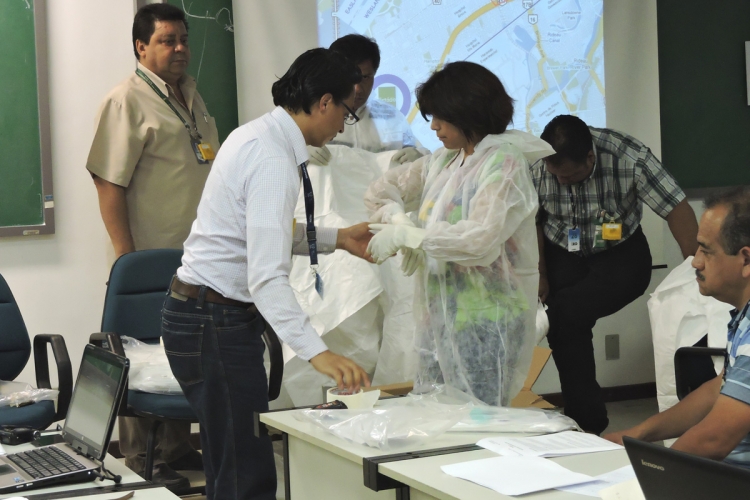Whether a Member State is embarking on a nuclear power programme or is broadening its application of nuclear technologies, a coherent emergency preparedness plan is critical to ensuring the safety of the environment, the public and professionals working with radioactive sources. In accordance with its statutory function to establish and promote standards of safety, the IAEA conducts exercises and organizes training events in order to strengthen the emergency preparedness and response (EPR) capacities of its Member States, using the expertise of the Incident and Emergency Centre (IEC), often facilitated through the IAEA's technical cooperation (TC) programme.
Radioactive materials are used in a host of scientific fields and industrial contexts, from measuring the nutrient content of soils to administering life-saving medical interventions. However, wherever radioactive sources are used, there exists the possibility that emergency situations may arise.
In view of the risks, "the IAEA assists in the design, conduct and evaluation of emergency exercises. We provide technical support to national and regional capacity-building projects," explained IAEA Director General Yukiya Amano during the International Conference on Global Emergency Preparedness and Response, recently organized and hosted by the Agency from 19-23 October







